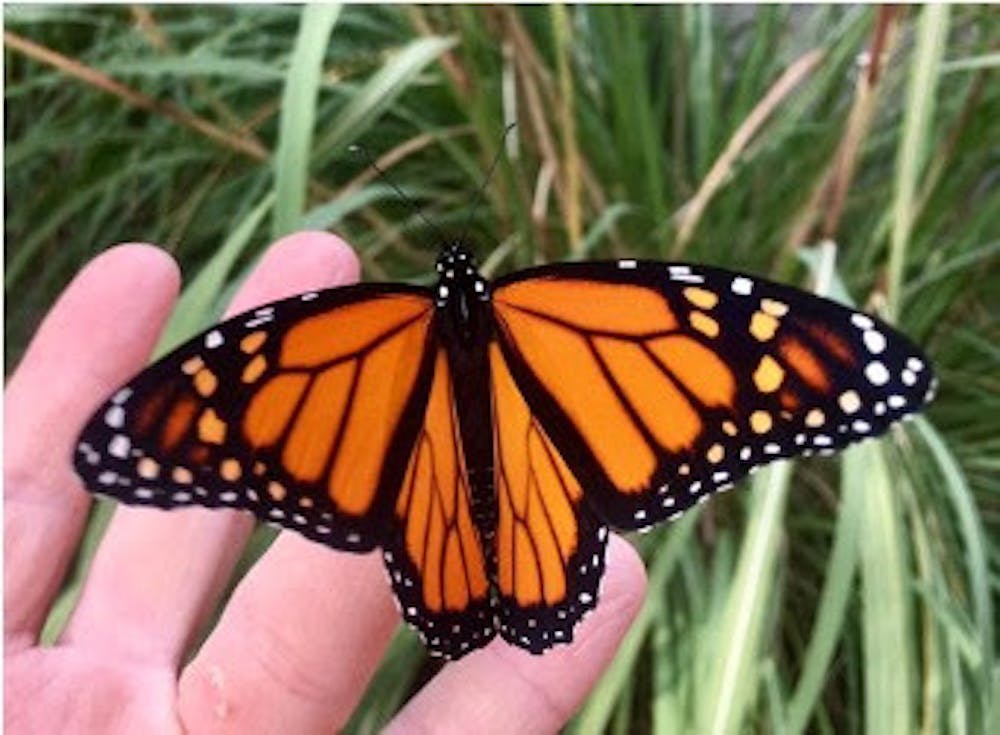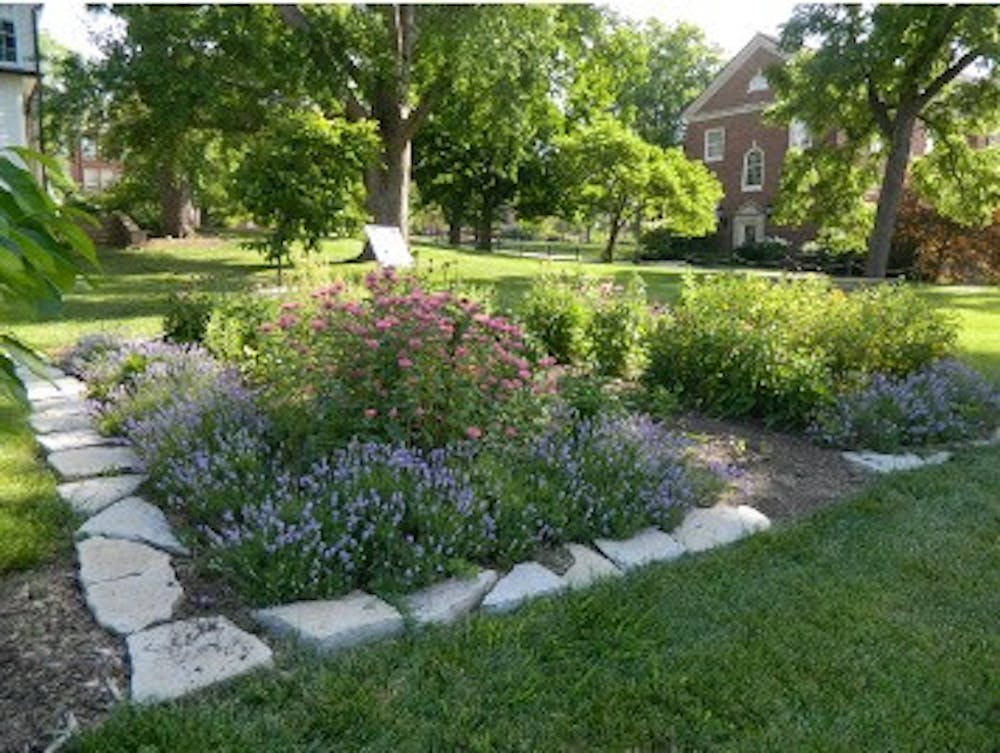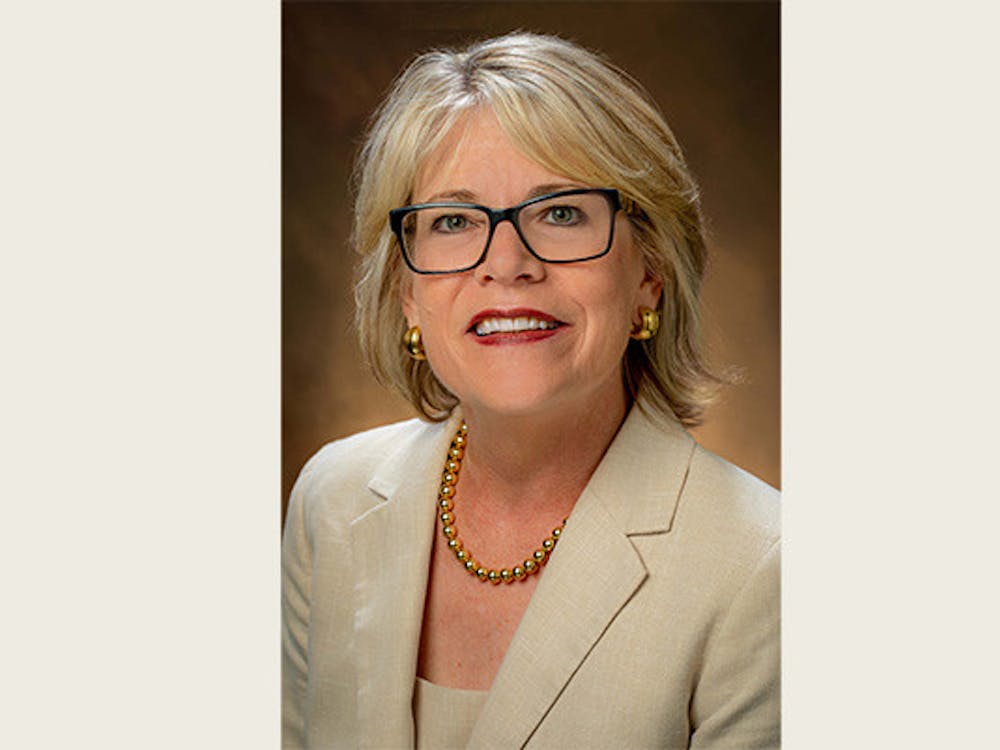By: Jenna Landgraf
The yearly highlight of Rebecca Eldemire’s childhood was going to the Columbus Observatory with her mom to see the Monarch butterflies, or as she used to call them, “flutterbies.” Now, a garden on Miami University’s campus is dedicated to the life and aspirations of Becca that brings these migrating butterflies through Oxford every year.
Rebecca was killed in 2015 in her off-campus apartment in what the authorities called a murder-suicide involving a former boyfriend. She was a junior geography and sustainability major at Miami, with a fiery passion to save the world. Her mother, Marlene Eldemire, said Becca wanted to inspire change.
“Becca’s passion was the environment,” Eldemire said, “her plan was to single-handedly save it. It was important to her, it's her legacy and as her mom and family and everybody at Miami, we're carrying that on for her.”
A few days after Becca’s death, her family started efforts to honor her memory; they created an organization called the BEEPS Foundation, which stands for Betterment for Environmental and Earth Protection. Marlene and other family members connected with Miami to create a butterfly garden near the McGuffey Museum dedicated to Becca. Administrators of the museum felt drawn to Becca’s cause, and the Eldemires worked with several different people at Miami to bring this garden to life.
One of these helping hands was Steve Gordon, a long-time administrator of the McGuffey Museum. This museum honors William Holmes McGuffey, a Miami University faculty member in the 1800s who compiled his own “reader” to teach lessons of grammar and civic education. Steve was instrumental in the construction of the gardens and even collaborated with the Myaamia Center in Oxford to make sure native plants were appropriately included.
Steve explained that it’s important to include perennial plants in the Monarch gardens, like blackberries and St. John’s Wort, to provide color and regrowth in the following years. Plants like Echinacea Purpurea, a North American flowering plant similar to a sunflower, are also important for the gardens in terms of pollination.
Monarch butterflies pass through Oxford each fall on their migration path towards Mexico. These insects depend on gardens like Becca’s to rejuvenate and continue their journey. Without these gardens, the Monarchs will fall victim to habitat loss. As global warming continues to rise, carbon dioxide poisons the milkweed that Monarchs depend on, therefore destroying their habitats and decreasing food availability.
Every year the adult butterfly will stop and lay her eggs on Milkweed plants where, in about a month, those eggs will hatch and grow into larva while feeding on the Milkweed. After the larva takes on the cocoon stage, which is about five days, metamorphosis allows the pupa to emerge as butterflies. They leave the only place they’ve ever known to venture on in following the rest of their kind southbound.
These gardens not only provide habitats for Monarch butterflies, but Steve believes they also provide temporary homes for people too, “I am always heartened by the number of people that stop by the garden, and sit on the BEEPs bench. And they just take a moment, whether they're meditating or just enjoying the beauty of the garden.”
Enjoy what you're reading?
Signup for our newsletter
In times of isolation, especially during the COVID-19 pandemic, it’s important to get outside and find perspective. For many, the outdoors is a healing place, and for Steve Gordon, the outdoors inspires him to continue learning and carrying on legacies like Becca’s. She was entirely drawn to nature; one of Becca’s favorite mantras was, “Go outside today no matter what and sit.”
The special thing about this garden is how it’s rebirthed each year, along with Becca’s spirit. She had big dreams to inspire change in the world, and Marlene feels these gardens are a great reminder of her love and aspirations.
“She just kind of shined, that was her way to shine,” Marlene said, “and so I feel that she's at the gardens with us enjoying the monarchs a lot.”
Photos courtesy of Steve Gordon and Marlene Eldemire.







